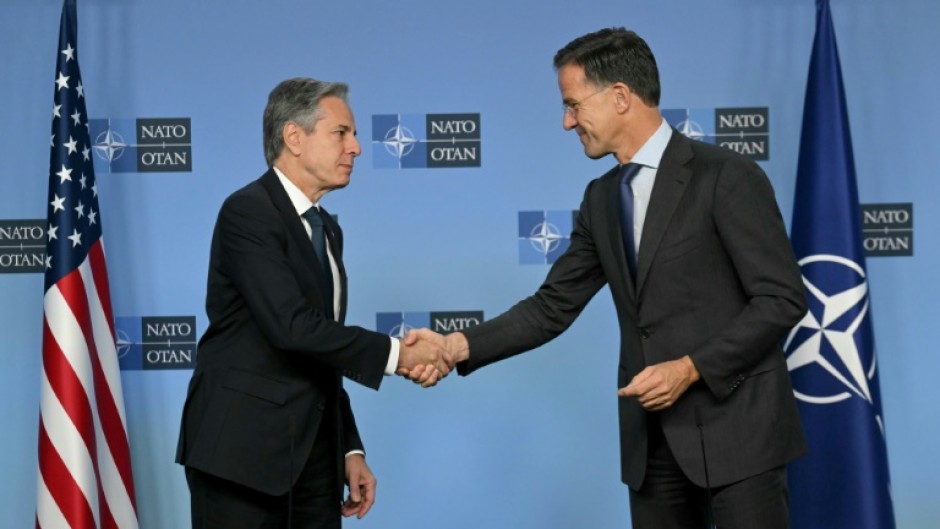US top diplomat Antony Blinken warned Wednesday that the deployment of North Korean troops alongside Russian forces on the Ukrainian border demanded a "firm response," during talks with top EU and NATO officials.
The secretary of state was in Brussels to confer with Washington's allies on ramping up support for Kyiv before Donald Trump reclaims the White House -- potentially jeopardising future aid.
Addressing reporters alongside NATO chief Mark Rutte, Blinken said they had discussed the entry of Pyongyang's forces "into the battle, and now, quite literally, in combat -- which demands and will get a firm response."
The US State Department confirmed Tuesday that thousands of North Korean troops have begun "engaging in combat operations" alongside Russian forces in the Kursk region, near the border with Ukraine.
Blinken called it "a profound and incredibly dangerous development", without specifying what form a US response might take.
Rutte meanwhile stressed the crucial role played by China in helping Russia's "war effort", as well as by Iranian weapons deliveries -- paid for with Russian funds that were in turn helping Tehran to "destabilize the Middle East".
Blinken's trip came as Trump's election victory, coupled with a political crisis in Germany, heightens fears about the future of assistance for Ukraine at a key point in the fight against Russia's invasion.
The secretary of state told reporters President Joe Biden was "committed to making sure that every dollar we have at our disposal will be pushed out the door between now and January 20," when Trump takes office.
But he also reiterated the call for Washington's allies to step up.
"We're counting on European partners and others to strongly support Ukraine's mobilization," Blinken said -- calling for more artillery, more air defences, more munitions as well as training for Kyiv's forces.
- 'More of the same' -
Blinken took part in a meeting of the North Atlantic Council, NATO's decision-making body, before talks with Ukraine's Foreign Minister Andriy Sybiga, who urged allies to "speed up all critical decisions."
"Ukraine's defence cannot be put on hold," Sybiga warned.
The secretary of state also held talks with the European Union's top diplomat Josep Borrell and his successor Kaja Kallas, a Russia hawk who is to take over a few weeks from now.
At her confirmation hearing on Tuesday, Kallas said the bloc must support Ukraine "for as long as it takes, and with as much military, financial and humanitarian help as needed."
Trump has in the past voiced admiration for Russian President Vladimir Putin and scoffed at the $175 billion the United States has committed for Ukraine since the start of the war in 2022.
US media have reported Trump's pick for secretary of state may be Senator Marco Rubio -- who has argued Washington should show "pragmatism" in its support as the war hits a "stalemate".
The Biden administration has made clear it plans in its remaining weeks to push through the more than $9 billion of remaining funding appropriated by Congress for weapons and other security assistance to Ukraine.
But despite Kyiv's pleas it seems unlikely Washington will lift its veto on Ukraine's use of long-range missiles to strike deep into Russian territory -- and Blinken did not tackle the issue in Brussels.
"Basically it was to do more of the same but more aggressively" for the remainder of Biden's term, was how one NATO diplomat summed up the US goals, as laid out by Blinken.
Trump in his first term aggressively pushed Europe to step up defence spending and questioned the fairness of the NATO transatlantic alliance -- robustly defended by Biden.
"Whatever approach the US leadership takes towards Ukraine, Europe will have to step up, and we will have to take the lead in supporting Ukraine's defence efforts and macro financial stability," said Olena Prokopenko of the German Marshall Fund of the United States.
By Léon Bruneau

